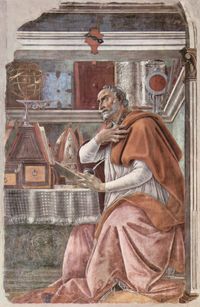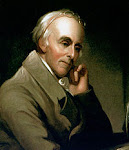Friday, October 30, 2009
Quote #78: most people have their price
"Few men have virtue to withstand the highest bidder." - George Washington (1732-1799), American founding father and first president of the United States.
Monday, October 19, 2009
Sunday, October 18, 2009
Quote #76: on happiness
From an early Christian letter dating from the second century A.D.:
And once you love Him, you will be an imitator of His kindness. And you must not be surprised that man can become an imitator of God. He can, since He so wills. Certainly, to be happy does not mean to tyrannize over one's neighbors, or to wish to have an advantage ove rthe weaker ones, or to be rich and therefore able to use force against one's inferiors. It is not in such matters that one can imitate God; no, such amtters are foreign to His majesty. On the other hand, he who takes his neighbor's burden upon himself, who is willing to benefit his inferior in a matter in which he is his superior, who provides the needy with what he himself has received from God and thus becomes the god of the recipients -- he, I say, is an imitator of God!- Epistle to Diognetus 10.4-6 (Ancient Christian Writers translation).
Sunday, October 11, 2009
Quote #75: a marriage blessing
One of my favorite passages from one of my favorite plays:
- William Shakespeare, from The Tempest, IV, i.
Honor, riches, marriage blessing,
Long continuance, and increasing,
Hourly joys be stil upon you!
June sings her blessings on you.
Earth's increase, foison plenty,
Barns and garners never empty,
Vines with clust'ring bunches growing,
Plants with goodly burden bowing;
Spring come to you at the farthest
In the very end of harvest.
Scarcity and want shall shun you,
Ceres' blessing so is on you.
- William Shakespeare, from The Tempest, IV, i.
Wednesday, October 7, 2009
Quote #74: the meaning of Jesus' birth
"The birth of Jesus provides our entrance into the reality and meaning of creation: this is the world of the Father revealed by Jesus. Jesus shows us that the creation is something to be lived, not just looked at, and the way he did it becomes the way we do it."
- Eugene H. Peterson, Christ Plays in Ten Thousand Places (Eerdmans: 2005), pg. 137
- Eugene H. Peterson, Christ Plays in Ten Thousand Places (Eerdmans: 2005), pg. 137
Monday, October 5, 2009
"I love the man that can smile in trouble, that can gather strength from distress, and grow brave by reflection. Tis the business of little minds to shrink; but he whose heart is firm, and whose conscience approves his conduct, will pursue his principles unto death."
- Thomas Paine, The American Crisis, No. 1, 1776
- Thomas Paine, The American Crisis, No. 1, 1776
Saturday, October 3, 2009
Quote #72: "the sacred had finally overspread the world."
A great Jewish scholar meditates on what the destruction of the Second Temple meant for Jewish practice in the world:
If we appreciate the force of powerful emotions aroused by the Temple cult, we may understand how grand a revolution was effected in the simple declaration, so long in coming, that with the destruction of the Temple the realm of the sacred had finally overspread the world. We must now see in ourselves, in our selfish motives to be immolated, the noblest sacrifice of all. So Rabban Gamaliel son of Rabbi Judah the Patriarch said, "Do His will as if it was your will, so that He may do your will as if it ws His will. Make your will of no effect before His will, that He may make the will of others of no effect before your will." His will is that we love our neighbors as ourselves. Just was willingly as we would contribute bricks and mortar for the building of a sanctuary, so willingly we ought to contribute love, renunciation, self-sacrifice, for the building of a sacred community. If one wants to do something for God in a time when the Temple is no more, the offering must be the gift of selfless compassion. The holy altar must be the streets and marketplaces of the world.- Jacob Neuser, Judaism in the Beginning of Christianity (Fortress Press: 1984), pgs. 98-99.
Subscribe to:
Posts (Atom)

St. Augustine (by Sandro Botticelli)

St. Ignatius Loyola (by Francisco Zurbaran)

Benjamin Rush (by Charles Willson Peale)

Patrick Henry at the Virginia House of Burgesses (by Henry Rothermel)

Edmund Burke (by Sir Joshua Reynolds)

Samuel Adams (by John Singleton Copley)

Alexander Hamilton (by John Trumbull)
































